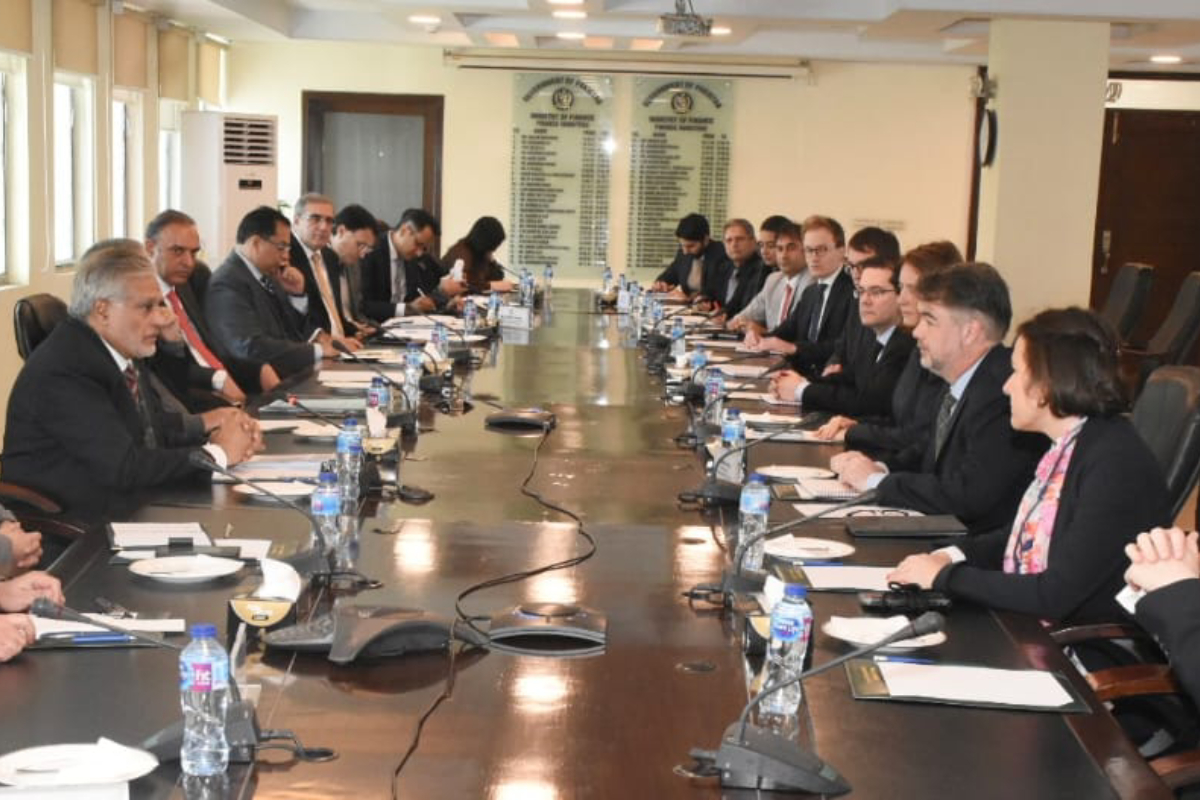The government of Pakistan is mulling increasing electricity tariffs further, along with substantial price hikes for other public commodities, as discussions with the IMF team kicked off in Islamabad for the much-needed $6.5 billion bailout Pakistan requires to avoid international default.
The IMF mission chief Nathan Porter held the first round of deliberations with the Pakistan finance minister Ishaq Dar, on the tough measures the Pakistan government is supposed to undertake for the revival of the IMF package.
The talks between the IMF and the Pakistani government resumed on February 1 after a delay of two months. So far, $3.5 billion of the total $6.5 billion IMF package remains undisbursed owing to the failure of the Pakistani government to complete the 9th review, which was scheduled for November 2022.
Expressing concerns, Porter raised the issue of the implication of the opposition party’s role in implementing the difficult decisions that Pakistan would have to take to avoid the default.
According to media sources, Porter said that the IMF had grave concerns that the political opposition parties might create some problems in the way of rolling out additional taxation measures that the Pakistani government is planning to impose for the required bailout.
However, Finance minister Mohammad Ishaq Dar assured Porter that the government would try to implement additional taxes in a manner that would prevent any untoward political and legal challenges. He further said that the government believes in political dialogue and would solve any arising issues through dialogue only.
Dar is also said to have assured Porter that his government would only take measures that could withstand judicial scrutiny.
Power Minister Khurram Dastgir Khan, who was also present at the meeting, told Porter that his government is working on a plan to raise electricity tariffs. He further stated that a high-level committee has been formed to devise modalities to offset the menace of circular debt in the gas sector.
Khan also informed Porter that the Pakistani government planned to introduce a presidential ordinance to raise taxes, but was prepared to introduce an Act in Parliament to address any remaining IMF concerns. It is pertinent to mention that the Parliament route would take 14 days before the new taxes are implemented.
Porter told the Pakistani authorities that they needed to do a lot more to fulfil the programme’s commitments. He also inquired about Pakistan’s plan to merge to bridge the fiscal gaps that emerged from the plan that was agreed to in June last year. Nathan stated, “The IMF and Pakistan will be working together on fiscal reforms”.
After the end of the meeting, a statement issued by the Pakistani authorities stated, “Nathan Porter expressed his confidence that the government will meet the IMF requirements for the completion of the 9th review.”
“Porter hoped that Pakistan would continue its progress on reforms in various sectors and effectively complete the IMF program,” it added.
The urgent talks with the IMF start at a time when Pakistan is battling 48-year high inflation. Pakistan’s economy is in dire straits as it is badly stricken by the balance of payment crisis. As per reports, thousands of containers containing imports are stuck at Karachi port as Pakistan’s foreign reserves have dipped to an all-time low of less than $3.7 billion. This January, year-on-year inflation has been recorded at 27.55 per cent, breaking a 48-year-old record.
As Pakistan struggles to service high amounts of external debt, its current foreign reserves can barely cover three weeks of imports. The State Bank of Pakistan has stopped issuing letters of credit, except for essential food and medicines, as the country prepares itself for the worst in case the talks between the IMF and the government collapse.










